SHANGHAI-born Australian Jewish community icon Sam Moshinsky was just 17 when his family sent him on a sole odyssey to faraway Australia, as an advance scout for a new life in a new country.
The Russian-born Moshinskys had emigrated to China early in the 20th century, after civil war pushed them out of Ukraine to Vladivostok in Russia’s far east, and then on to Shanghai, where Moshinsky was born in 1934. In the late 1940s, the family could see the writing on the wall for their business investments as the recently triumphant communist regime increased its confiscations of westerners’ holdings. In 1951, it was time to move again, and this time the destination would be Australia.
Moshinsky has previously written Goodbye Shanghai, a 2009 memoir about his childhood and teen years in Shanghai’s French Concession, a relatively prosperous district, compared to the down-at-heel Hongkhou area of Shanghai where some 18,000 stateless Jewish refugees from central Europe lived in a wartime ghetto enforced by the Japanese occupiers.
Life was calm for the family until the 1949 victory of Mao Zedong’s communist armies ushered in the People’s Republic. China was no longer a place for westerners, and the Moshinskys looked to a family member in Melbourne as the key to their future. Red tape surrounding visas delayed their exodus, so Sam was sent ahead to live in Melbourne with Grischa Sklovsky, a distant relative, where the young arrival would lay the groundwork for his family to follow.
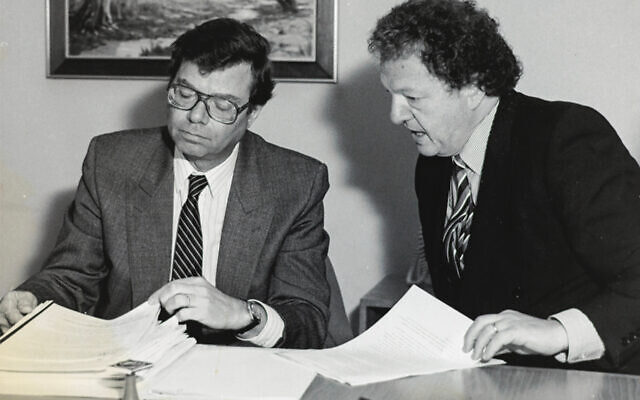
Docking in Sydney Harbour, Moshinsky was met by Alex (Sasha) Vinogradov and his family, Russian emigres he knew in Shanghai, who were living in Sydney.
He was amazed at the ease with which he could buy a ticket at Central Railway Station for his train trip south – without the need for a swathe of identity documents this newcomer from China had at the ready.
Fittingly, he arrived in Melbourne on Cup Day to begin his great Australian gamble. His experiences are captured in his sequel memoir, Hello Australia, which was launched this year.
Later reunited with the rest of his family, Moshinsky’s unfolding Australian story is a vivid account of a young man taking the opportunities he found in an open, free, welcoming, yet culturally unfamiliar country.
As he writes, his first encounter with Australia was made “in wonder and bewilderment”, leaving behind a prosperous, somewhat privileged life in Shanghai – where the family had recourse to servants – for a country suffused by a larrikin egalitarianism.
Although Sklovsky would go on to become foundation chairman of SBS in the 1970s, at this stage of his life he was no multiculturalist – indeed the concept of Australian multiculturalism was virtually non-existent. In tune with the 1950s Australian zeitgeist, he was an avowed assimilationist, writes Moshinsky, “critical of recent migrants who insisted on retaining their European mannerisms and preserving their narrow social cliques”.
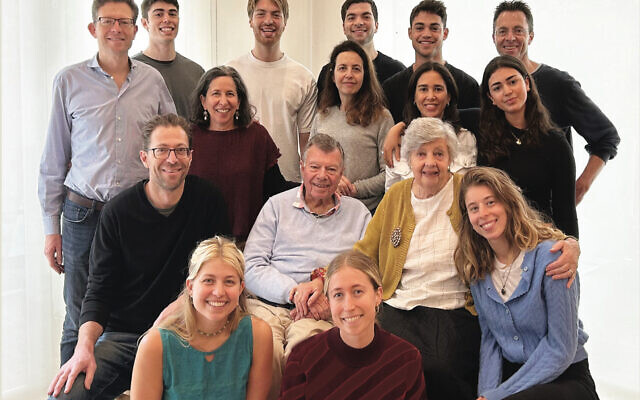
“With every good intention, he encouraged me to adopt his attitude, and our discussions revolved around how I could most quickly integrate. Firstly, he felt that I should get a job that involved physical labour. He saw this as an important way for me to shed the indolent culture associated with my youth in Shanghai.
“To this end, he arranged for me to be interviewed for a job as a garage hand,” recalls Moshinsky. “I was initially aghast – and even more so when I actually got the job.”
Sklovsky also urged him to hitchhike around Australia to get a sense of the continent. Moshinsky and his Sydney friend Vinogradov arranged to rendezvous in Goulburn, NSW.
But hitchhiking from Melbourne proved a challenge for Moshinsky.
“It did not take long for me to realise what a novice I was. A few yards ahead of me was a young man in military uniform who was also attempting to hitch a ride. I approached him, introduced myself and asked if I could join him. He was quite affable and suggested that I go on ahead and wait. He told me that as a recently discharged soldier, it would be easier for him to score a ride, and that he would ask the driver to stop and pick me up. I felt embarrassed and naïve when a short while later, he waved at me from a passing car.”
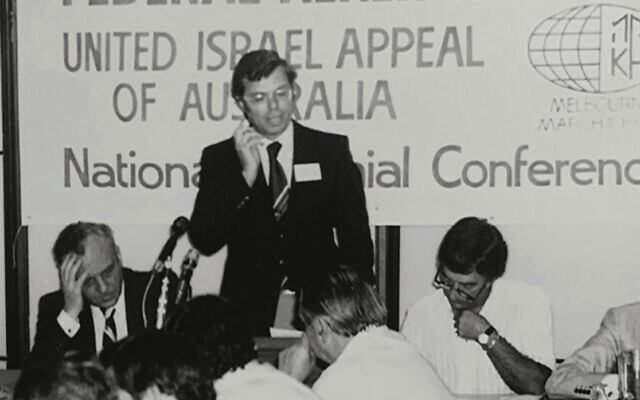
Making use of the opportunities offered by life in Australia, Moshinsky completed a commerce degree at the University of Melbourne and later became a chartered public accountant, a profession that in the ensuing years would deliver him into the midst of some of Australia’s and the Jewish community’s most fascinating and influential personalities.
After university and a few years at an accounting firm, an overseas odyssey took him to Israel, Europe and the United States. Moshinsky has visited Israel many times since – but this first trip was among his most memorable. A Melbourne friend Maurice Burstin invited him to celebrate Pesach at Kibbutz Gvat near Afula, a kibbutz aligned to the socialist Mapam movement.
“Being accustomed to the traditional celebration of Passover, the approach of this kibbutz was a real eye-opener for me. The kibbutz was festooned with banners and red flags, alongside the Israeli flag, to symbolise the liberation of oppressed workers from capitalist masters. A ceremony in the fields was followed by a politicised seder unlike any other I had ever attended.”
Travelling on to the US, Moshinsky began an internship in accounting and auditing at the Arthur Andersen firm in Chicago, which laid the groundwork for further professional development.
The northern autumn of 1960 was a pivotal time to be in America, with the presidential campaign between vice-president Richard Nixon and senator John F. Kennedy in full swing. Moshinsky has vivid memories of a freezing winter’s day in January 1961, watching TV, as Kennedy took his presidential oath of office.
Returning to Australia, he was soon applying the more advanced auditing practices he had learned in Chicago, forming the basis for a successful career. In later years, Moshinsky became a consultant to a number of large and prestigious organisations and assisted several key clients with issues relating to the conversion to decimal currency in 1966.
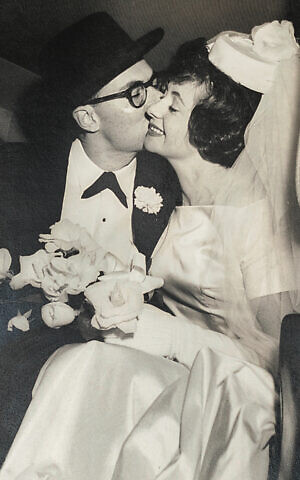
Meanwhile, his personal life reached a milestone when he met and married Ada (nee Gringlas) of Melbourne. The couple set the foundations for a large family in which Sam and Ada are now grandparents. Ada pursued a career in law – and became a Queen’s Counsel – in an era when women establishing themselves professionally was uncommon.
In parallel to his professional achievements, Moshinsky immersed himself in Jewish communal life from an early age, heading the Melbourne Jewish Youth Council of the 1950s, where he worked with Isi Leibler, Nathan Fink and Arnold Bloch. He would later take key advisory and leadership roles at the United Israel Appeal (UIA) and at his family’s synagogue, Temple Beth Israel (TBI), where his three sons would become bar mitzvah and were married.
His involvement at UIA began after the 1967 Six-Day War when Isador Magid (late father of AJN proprietor Robert Magid), then co-president of UIA Victoria, invited Moshinsky to apply state-of-the-art accounting practices to process a flood of communal donations pouring in for Israel.
Isador and his wife Ira were born in the Manchurian city of Harbin, resettling in Shanghai after the Japanese army seized Harbin. The Magids were one of the few other Shanghai Russian Jewish families who had settled in Melbourne. At UIA, Moshinsky became Victorian then federal treasurer and then federal chair.
At TBI, he became president, and was involved in the shule’s major 1980s-1990s rebuilding.
Moshinsky became a senior executive at cardboard box entrepreneur Richard Pratt’s Visy Group, which led to a position on The AJN board – and later to the role of chairman – in the 1980s during Pratt’s ownership of the newspaper, under the celebrated editorship of Sam Lipski.
In 2000, Moshinsky was recognised with a Medal of the Order of Australia for his contribution to Jewish organisations and the general community.
Goodbye Shanghai, his earlier memoir, drew interest in China, and a Mandarin edition was published at the urging of Shanghai academic Professor Pan Guang, director of Shanghai’s Centre of International Studies, who has a strong interest in Shanghai’s postwar Jewish emigres and how they fared in the countries they later settled in.

The Moshinskys visited Shanghai in 2012 for the launch of the book’s Mandarin edition, which was held during a conference, the Second World Forum of Young Chinese Scholars Engaged in Jewish Studies. The book had a print run tripling its English-language original.
At the launch, Moshinsky told his audience that during the 1930s, “China had a door open and the lives saved as a result will forever bind the Chinese and the Jews. And this is what I find so gratifying in your determination in pursuing Jewish studies.”
During the pandemic lockdowns, he busied himself writing Hello Australia, the sequel to Goodbye Shanghai, an Australian immigration success story that has unfolded in the aftermath of his family’s long and interesting China interlude.
Moshinsky said he decided to end the story in his second memoir around September 2022, when Queen Elizabeth II passed away. As a young man on that hitchhiking trip in February 1952, he had visited Canberra and had sat in the Parliamentary gallery when then prime minister Robert Menzies announced the death of King George VI, her father, and the words “Long live the Queen” rang out in the chamber.
Moshinsky reflected that the Queen’s death was “an apt and poignant moment to conclude this book”.
Hello Australia is published by Real Publishing and is available through Amazon and other online retailers. A downloadable e-book version is available.

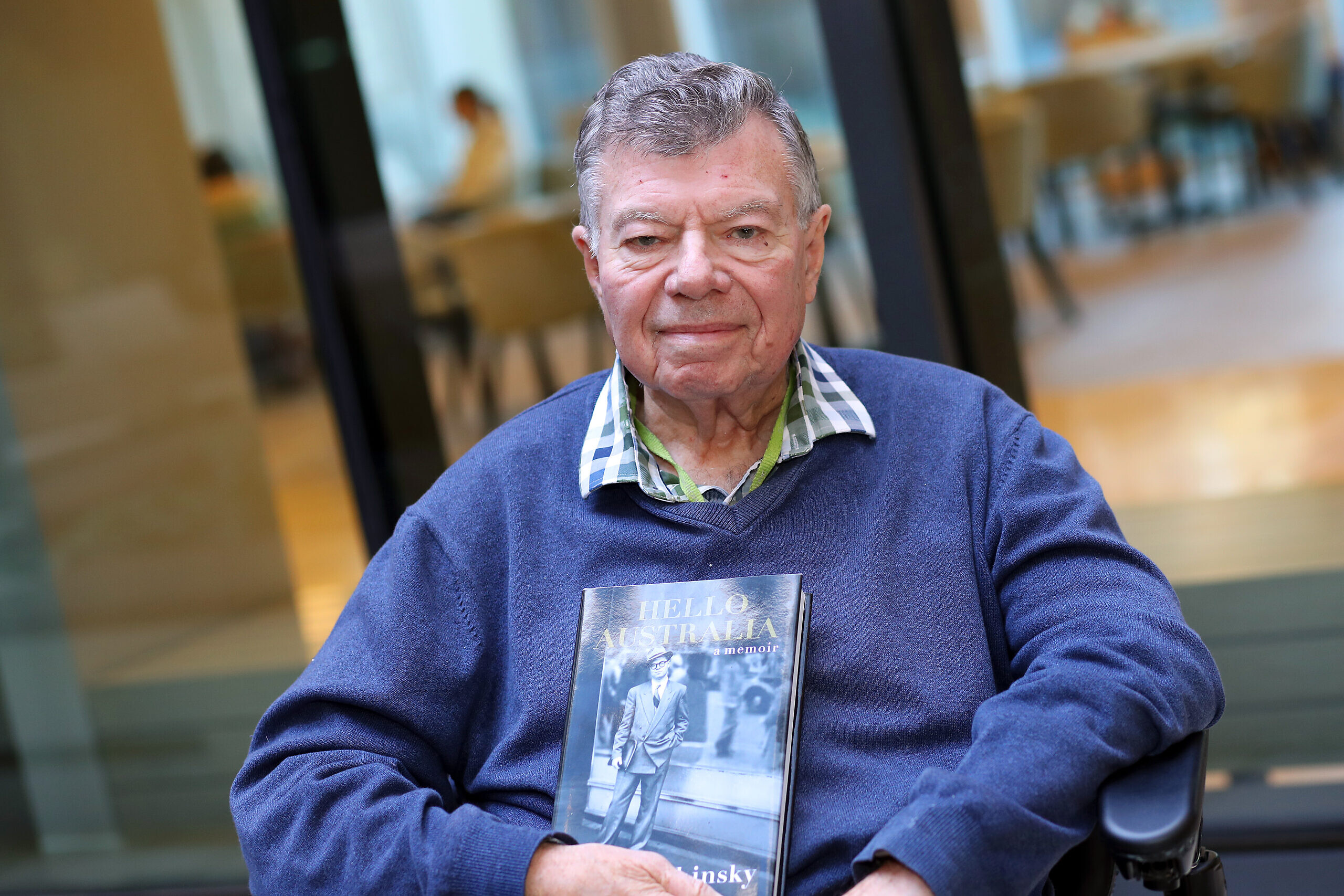
comments